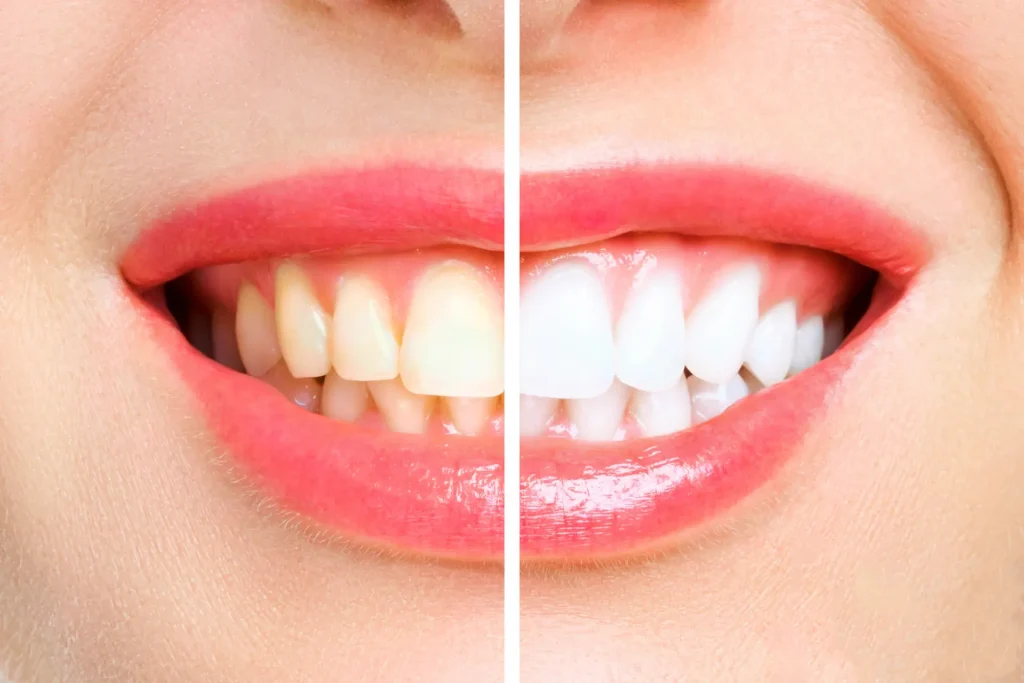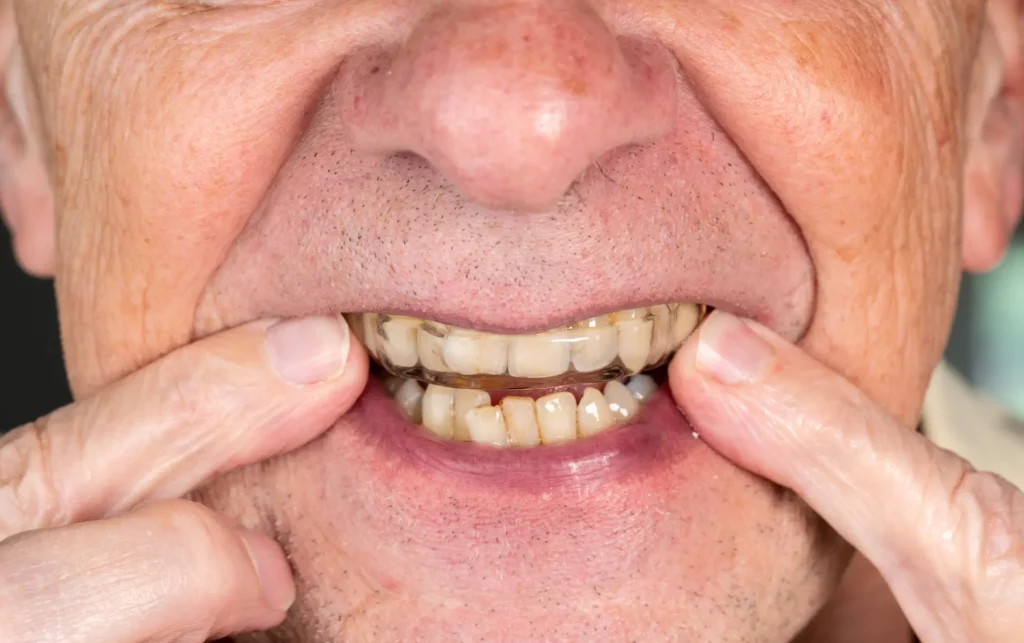Stained teeth are a common concern among individuals seeking a beautiful smile. At Hanna Dental Implant Center, we understand the impact of stained teeth on confidence and oral health. Our dedicated team is committed to helping you achieve a healthy, bright smile that you can be proud of. Let’s explore what stained teeth are, their causes, prevention techniques, and professional treatment options.
What Are Stained Teeth or Dental Stains?
Stained teeth, also known as dental stains, refer to the discoloration of teeth that affects their appearance. These stains can be categorized as external (surface) stains, such as stained molars or internal stains. External stains occur on the outer layer of the teeth, while internal stains occur within the tooth structure.
Common Causes of Tooth Discoloration
Various factors contribute to tooth discoloration. These include:
- Foods and Drinks: Certain foods and beverages, such as coffee, tea, red wine, and berries, can leave stains on the teeth.
- Tobacco Use: Smoking or chewing tobacco can result in brown stains on the teeth.
- Poor Dental Hygiene: Inadequate brushing and flossing can allow plaque and tartar buildup, leading to dental stains.
- Medications: Some medications, such as antihistamines and certain antibiotics, can cause tooth discoloration.
- Natural Aging: As we age, the outer layer of the tooth enamel thins, revealing the yellow dentin underneath.
Understanding the Different Colors of Dental Stains
Dental stains can appear in various colors, providing information about their underlying causes:
- Yellow Stains: Yellow marks on teeth are commonly associated with certain foods, drinks, and smoking. Regular consumption of coffee, tea, or tobacco products can contribute to yellow teeth.
- Brown Stains: Brown stains on teeth are often caused by tobacco use, certain foods and beverages, or even dental products containing ingredients like chlorhexidine.
- White Spots: White spots on teeth can result from demineralization, early decay, or fluorosis, which occurs due to excessive fluoride consumption during tooth development.
- Blue or Gray Stains: These stains are usually intrinsic and can be caused by medications (e.g., tetracycline) or trauma to the tooth.
- Black Stains: Black spots on teeth may indicate advanced decay or underlying medical conditions and require immediate dental attention.
- Orange and Green Stains: Although rare, orange and green stains can be linked to poor oral hygiene or the presence of certain bacteria.
What are the Types of Tooth Stains?
Tooth stains can be classified into three main types:
- Extrinsic Stains: These stains occur on the tooth surface and are typically caused by external factors like food, drinks, or tobacco. They can often be effectively removed through professional cleaning and good oral hygiene practices.
- Intrinsic Stains: Intrinsic stains develop within the structure of the tooth and may be caused by medications, excessive fluoride, or trauma. In some cases, these stains may require professional treatments like teeth whitening or dental veneers.
- Age-Related Stains: As we age, a combination of intrinsic and extrinsic factors can lead to gradual discoloration of teeth. This can be addressed through a combination of preventive measures and professional treatments.
Dental Stain Prevention and Maintenance
Maintaining good oral hygiene is crucial in preventing dental stains. Here are some practices to follow:
- Regular Brushing and Flossing: Brush your teeth at least twice a day and floss daily to remove plaque and prevent stain buildup.
- Stain-Prevention Toothpaste: Consider using toothpaste specifically formulated to combat dental stains and promote a brighter smile.
- Lifestyle Changes: Reduce consumption of stain-causing foods and beverages, such as coffee, tea, and red wine. Quitting smoking can also significantly improve the appearance of your teeth.
- Regular Dental Check-ups: Schedule routine dental visits for professional cleanings and to address any potential dental issues in their early stages.
Dental Implants for a Bright and Healthy Smile
Dental implants will be an ideal option for you if you have severe tooth discoloration or damage, providing a solution to remove damaged teeth and replace them with a long-lasting solution.
With our expertise and personalized approach, you can be sure that our professional treatment options are designed to meet your needs and deliver the results you deserve. Contact us today to schedule a consultation and take the first step towards a brighter, more confident smile.

Home Remedies and Over-the-Counter Solutions For Discolored Teeth
While professional treatments yield the best results, some over-the-counter options can help with surface stains:
Whitening Toothpaste and Mouthwashes: There are various whitening toothpaste and mouthwash products available that can help remove surface stains. However, it’s important to use them as directed and avoid overuse, as excessive or prolonged use can damage tooth enamel.
Natural Remedies: There are several natural home remedies that are commonly suggested for treating discolored teeth. Please note that it’s important to consult with a dentist before trying any of these methods, as they may have limitations and potential risks or limitations.
Let’s take a look at the different types of home remedies people explore for natural teeth whitening:
- Baking Soda: Baking soda is known for its mild abrasive properties and can help remove plaque buildup and surface stains on teeth. A common approach is to create a paste by mixing baking soda with water and brushing your teeth with it. It’s recommended to do this no more than once or twice a week to avoid potential enamel erosion.
- Oil Pulling: Oil pulling involves swishing oil, typically coconut oil, in your mouth for several minutes to improve oral hygiene and potentially reduce staining. While there is limited scientific evidence supporting its effectiveness, some people claim that it helps whiten teeth and improve overall oral health.
- Dietary Changes: Making dietary changes can help prevent further staining of teeth. Foods and beverages that contain tannins, such as wine and tea, can contribute to tooth discoloration. Limiting the consumption of these staining substances and maintaining good oral hygiene practices can help reduce the appearance of stains.
- Activated Charcoal: Activated charcoal has gained popularity as a natural remedy for teeth whitening. While it may seem counterintuitive to use something black to whiten teeth, activated charcoal is highly absorbent and can attract and remove stains from the surface of the teeth.
The theory behind the use of activated charcoal for teeth whitening is that its porous structure can bind to compounds that cause discoloration, such as tannins from foods and beverages, and lift them away from the teeth when rinsed. As a result, teeth may appear brighter and less stained.
Need Professionals to Take Care of Your Smile?
At Hanna Dental Implant Center, we prioritize your oral health and satisfaction. Our team of experienced professionals is dedicated to providing personalized advice and treatment. Contact us for a consultation and take the first step towards a brighter, more confident smile.
Frequently Asked Questions
Can I remove stains from my teeth?
Yes, dental stains can be effectively removed through professional treatments.
How do you fix badly stained teeth?
Severe or stubborn stains may require professional treatments such as teeth whitening, dental veneers, or bonding for optimal results.
Can stains on your teeth go away?
With proper dental care and treatments, most stains can be significantly reduced or eliminated altogether.
Can stained teeth ever be white again?
Yes, professional teeth whitening treatments can restore the natural whiteness of your teeth.
Contact us today to schedule a consultation and discover the best treatment options for replacing your stained or damaged teeth.




